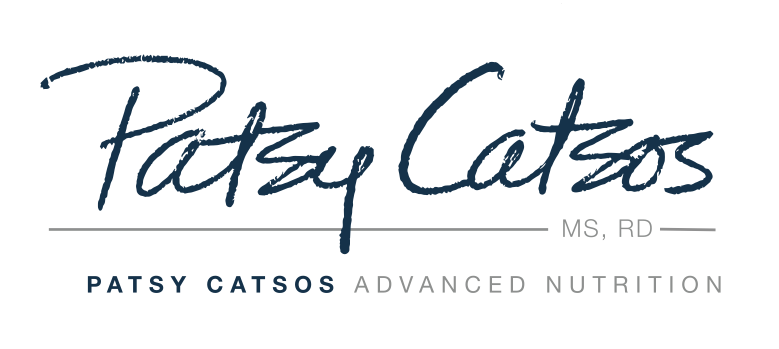Presented by Patsy Catsos.
Monday, July 27, 2015
SAS Institute Inc Health Care Center, 100 SAS Campus Drive, Cary, NC, 27513-2414
6-hour advanced training for dietitians/nutritionists--increase your expertise in the delivery of the low-FODMAP diet for managing irritable bowel syndrome (IBS). 6 CPEs pre-approved by the Commission on Dietetic Registration.
See below for program details.
To pay by check, click here for a downloadable pdf of the registration form.
Every dietitian should know more about FODMAPs! Why? Because up to 20% of Americans have IBS. That includes 20% of your diabetes or heart disease patients; 20% of your overweight and obese patients; 20% of the people buying food at your grocery store; 20% of the people eating in your dining hall or cafeteria; 20% of your sports nutrition clients; 20% of your friends and family. Even if the primary focus of your practice is not digestive health that’s a lot of people you could help if you knew had an expert command of the FODMAP approach! A FODMAP elimination diet is an evidence-based “learning diet” that helps of to 75% of people with irritable bowel syndrome (IBS) effectively manage debilitating gastrointestinal symptoms. To get the best outcomes, patients need more than a list of high- and low-FODMAP foods; they need detailed, customized, effective nutrition care planned by a knowledgeable RDN.
At this advanced workshop, the foundation of the FODMAP approach will be established with an abbreviated review of the literature; emphasis will be on studies published since 2013. We will then cover a number of special topics that will expand your understanding of how to identify high- and low-FODMAP foods in the absence of a complete FODMAP nutrient database. The remainder of the course will be devoted to clinical decision-making during delivery of the FODMAP diet, case studies and application of the diet while avoiding common pitfalls.
Delving into the nuances of the FODMAP approach, health care professionals will gain the following insights:
- Not all probiotics and fiber supplements are alike; learn which ones are most appropriate for your patients and which ones should be avoided due to high FODMAP ingredients.
- Is low-FODMAP diet indicated for SIBO? How to proceed given the current lack of evidence on nutrition therapy for SIBO.
- Without a biomarker, non celiac gluten sensitivity is a diagnosis of exclusion. Are your patients unnecessarily eliminating gluten?
- Detecting hidden FODMAPs in manufactured food ingredient list can be a daunting challenge. Help your patients understand the dos and don’ts.
- Understand the spectrum of fermentable fibers including non-FODMAP fibers such gums, pectin, and starches. Hint: Non-FODMAP fibers can cause gas too!
- Answers to all those “what ifs”: What if my patient hasn’t been diagnosed with IBS? What if my patient has Crohn’s or ulcerative colitis? What if my patient has/hasn’t had breath testing? What if my patient isn’t a good candidate for the diet? What if my patient has only partial improvement or no improvement on the diet? What if my patient fails all the FODMAP challenges? What if my patient thinks she is dairy or gluten-intolerant? What if my patient follows a plant-based diet?
Who should attend: Health care professionals, particularly registered dietitians/nutritionists with prior exposure to FODMAPs and wishing to fine tune clinical decision-making skills and increase competence in identifying high- and low-FODMAP foods and supplements. Join me on July 27, 2015 and take your FODMAP practice beyond the basics.
Patsy Catsos is a registered, licensed dietitian with an IBS- and SIBO-focused private practice in Portland, Maine. Ms. Catsos was an early adopter of the FODMAP approach and is an expert writer and continuing professional education provider on dietitian delivery of the FODMAP-elimination diet for management of the irritable bowel syndrome.
Ms. Catsos earned degrees in nutrition at Cornell University and Boston University. She completed her internship at Boston’s Beth Israel Hospital. She is a current board member and past-president of the Maine Academy of Nutrition and Dietetics and was recently honored as the Maine 2014 Outstanding Dietitian of the Year.
Educational Objectives: After attending this session, attendees will be able to
- List the common characteristics of FODMAP carbohydrates and how they act in a collective manner to trigger IBS symptoms
- Apply logic and mine data sources to identify whole foods and food ingredients suitable for low FODMAP diets including soy, corn, wheat, and dairy; starches; and gums
- Describe a possible treatment algorithm for the FODMAP approach with IBS patients
- Name three common pitfalls in the delivery of the FODMAP elimination diet
Schedule:
8:00-8:30 AM Registration
8:30-9:30 AM Literature review: Evidenced based research supporting role of FODMAP approach for IBS and other conditions; recent updates
9:15-10:15 AM FODMAP composition of foods; how to think like a FODMAP dietitian; advising patients in setting of incomplete data about the FODMAP composition of foods.
- What about various forms of soy, corn, legumes, wheat and dairy foods and derivatives?
- The fermentable fiber spectrum. What about gums, pectin and starches?
10:15-10:30 PM Break
10:30-11:30 AM Algorithms for FODMAP approach to managing IBS
11:30-12:15 Round-up of other nutrition and lifestyle therapies for IBS
12:15 AM-1:15 PM Lunch; boxed lunches will be served; optional, informal lunchtime discussion on marketing your IBS practice. Bring your business cards and some ideas to share.
1:30-2:00 Evaluating dietary supplements with respect to FODMAPs—practice
2:00-3:00 PM Case studies—interactive workshop
Registration fee: $195.00; includes lunch.
Refundable up to one week prior to July 27, 2015 (minus a $25 transaction fee).

